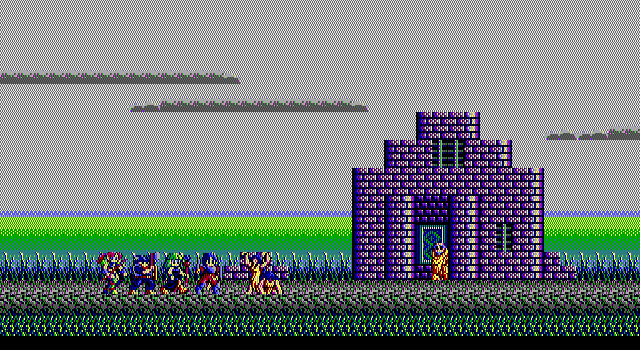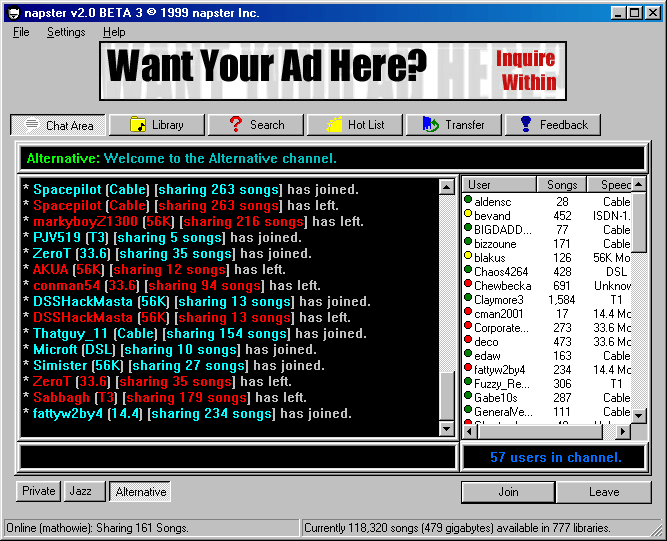callan \ blog
september 4, 2016
When I was a kid, there was Windows 3.1. My household held out for a while before going 95. I played lots of games on the chunky ol' IBM, like One Must Fall, Jill of the Jungle, Warcraft I, Lemmings, and Sorcerian, a personal favorite dug up by my economical brother from the discount bin at Babbage's. But I had WordPad open more often than anything else.

Sorcerian, lest we forget.
Thinking back to the hundreds of short stories, poems, extended narratives, ramblings, and general nonsense I spewed out back in those days, it's impossible to wrap my head around or relate to the way I used to just let loose with whatever wound up in my mind. I wrote both fanfiction - not that I was familiar with that term when I was seven or eight - and original works inspired by the worlds I loved building as a kid. I had a whole cast of characters, both from my own brain and from the books and TV and computer games that captivated me then.
Writing was nothing like the deeply self-conscious, mostly-editing, continual-second-guessing process it is for me now. I say as I eyeball this sentence, thinking it's a garbage heap and knowing I'll take twenty more cracks at revising this post before I finally let it go. Writing was effortless; it was freedom. I learned to type in preschool days and never really thought much about the comparative weirdness of my constant computer use (my, how things have changed in 20 years). I liked telling stories and I had an effervescing supply of them, always spawning and circulating and yawning on in my mind - at least, until I began my sudden shift towards editor, fat-renderer, red pen- and backspace-wielding acolyte of concision.
Who knows if it's connected or coincidental, but I discovered the joy of chat rooms in fifth or sixth grade. Lycos and MSN, Napster's in-client peer-to-peer messaging system (yep, there was one, swarming with creepiness), chat spinoffs of various music-related messageboards. Around the same time, AIM became all the rage in my peer group. I was drawn in as much as my fellow middle schoolers of the mid-to-late-1990s, and just like that a big chunk of my fiction reserves got rerouted into chat clients. On Lycos Chat, my best friend and I masqueraded as a singular ultra-chic 19-year-old expat living in Cairo. In the Napster client, we were two would-be rock starlets, if only it weren't for us being 12 and in the middle of exurban nowhere. On AIM, we'd pretend to be ghosts or hackers preying on the popular kids who didn't have a clue who was lurking behind the screenname. If somebody, anybody recognized your existence enough to be messaging you, you had to reply to them. The attention was too precious to squander or ignore.

The "Alternative Channel" of Napster chat where *~obviously~* all the alts hung out.
At some point in my early teens, this shifted from constructing identities and being a disembodied will-o'-the-wisp to something more grown up, more serious. I chatted with dozens of friends on AIM, kids from my school and people I'd encountered online, mostly from Livejournal. I would set alerts to let me know when certain people were no longer "Away." I put cryptic devotional messages in my profile, mostly song lyrics and *~no~* shortage of asterisks and tildes. The conversations I had with friends both local and faraway would go on for hours, well into the night. With the people I also regularly saw in meatspace, an unutterable tension would sometimes develop between our AIM interactions and our face-to-face ones. Why was it so easy to write to somebody I could barely look in the eye? Why could I keep the conversation going when I was typing, but ran out of steam the minute I had to use my voice? This was well before the heyday of online dating, mind you; these were still new lessons to be learned.
By the time I signed up for OkCupid, I was used to meeting people on the Web and talking to them at great length, sometimes in unabashed detail. I looked for the finest prose in the best-written profiles, the shining examples of online rhetoric that occasionally felt impossible to sniff out in a rubbish heap of "hey sexy u free on Satruday's?". But the good news is there are plenty of fish in the sea (not to mention plentyoffish.com), and there was always a steady roster of capable communicators to choose from. The downside was the gulf between meatspace and online chatting remained. Really, it was worse, partnered now with the pressures of dating.
I found the longer I spoke to somebody through text, the less likely I was to hit it off with them if and when we met up in person. It was as if the lacunae in our chats left lots of space for my imagination to run wild, for my hopes and expectations, based on incomplete information, to somehow take root and transform my dates into an unlikely idealized version. I was confused and frustrated by how poorly people seemed to translate - as if their physical presences were compressed or corrupted, intrinsically different and, well, worse than what they seemed to be online. Now I realize how shallow and impetuous that is, especially with regard to people I only met once or twice before slipping away. But I couldn't see past it at the time, and that disappointment gave way to a new problem, my now-problem.
My now-problem boils down to a willingness to drop down certain emotional safeguards, to become more trusting and open, within the protective bubble of text-based conversations that go on for a few weeks or months. That willingness evaporates outside the textscape - when things go IRL, the tension snaps and I'm no longer "available." My expectations aren't met; my idealistic revision of a person is just as nonexistent as it is unfair; I can't cross-polinate real humans with my skewed character sketches.
But no, let me give myself a break here - often enough, these textual trysts cover up any number of complications or straight-up dealbreakers on one or both sides. In the algorithmic age, we like to put stock in what we find through means we cannot see or understand. We forget about the messy infrastructure hidden from view because the results we get look so clear and true. We type queries in search bars and sweet nothings in text boxes, and all we see is our words filling up their elegant blank rectangular space, not the ugly plumbing underneath. And when problems eventually come to light, and/or when zero sparks fly in person, the texts or chats must cease just as the IRL contact does. At times I find myself missing the text-based interactions, but also knowing they can't resume without the expectation of Eventually Leading to Something More. Is this merely the fate of a girl who grew up gradually redirecting fiction into communication with actual people? Or is it a sign of the times, a condition of a generation that speaks via notifications on vibrate?
What I'm saying is... build me a better chat bot, I guess. That way, no messy flesh or bone or eye contact need get in the way of our nonlove. And I can be who I want to be, and the bot will be the best complement to whatever I wind up deciding I am, and it'll do or say whatever I want or expect from it, and we can chat about death metal and divorce and take personality quizzes 'til the sun comes up and it's time to go to first period English.
